Most of you should be very familiar with the four rules of firearms safety as promulgated by Col. Jeff Cooper:
- Every gun is always loaded
- Never point firearms at anything you are not willing to kill or destroy
- Keep your finger out of the trigger guard until it is time to shoot
- Always be aware of your target and what is behind it
Rule #1 is easy. Treat the gun as if it is loaded. If you don’t know its status for certain, treat as if it is. Even if you do know that firearm is unloaded, treat it as if it is.
Because we are assuming that the firearm is loaded no matter the actual condition, we need to think about what that means to us and what we would want. The primary thing we don’t want is a firearm pointed at us. It doesn’t matter if it is empty, we don’t want a firearm pointed at us. Your odds of being injured by a firearm go down dramatically if nothing is ever pointed at you. And everyone around you has the right to the same expectation from you.
KEEP THE MUZZLE POINTED IN A SAFE DIRECTION
Keeping a muzzle pointed in a safe direction is a simple exercise as long as the brain stays engaged. “Safe Direction” is defined as one in which nothing important will be damaged, injured or destroyed in the event of a discharge. For most everyday life activities, that’s easy. Keep it in your holster – you do wear a good pocket holster even for your little bitty, only wear it around the house in my shorts gun, right?
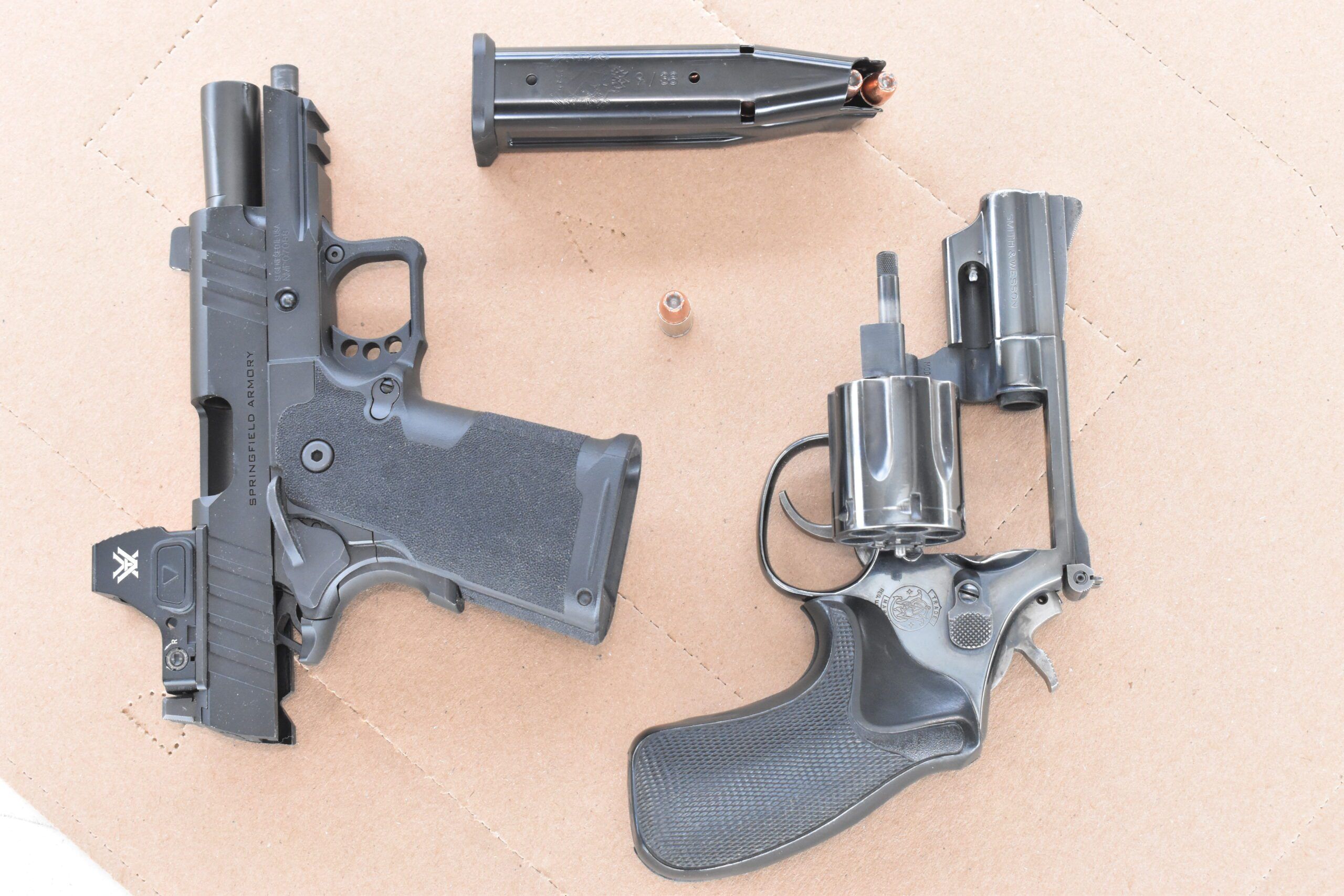
The same rules apply when you go to the range. Whenever you touch that gun, it must be pointing downrange in an approved direction. Not sure what that is? Ask a Range Officer. Getting it out of the bag? Point it down range. When you set it on the bench, point it down range. When you load it, point it down range. When you finish shooting it, point it down range. Take a piece of brass down your shirt? Keep it pointed down range. BTW, that is the reason we recommend all our students wear high-necked shirts when they attend our classes.
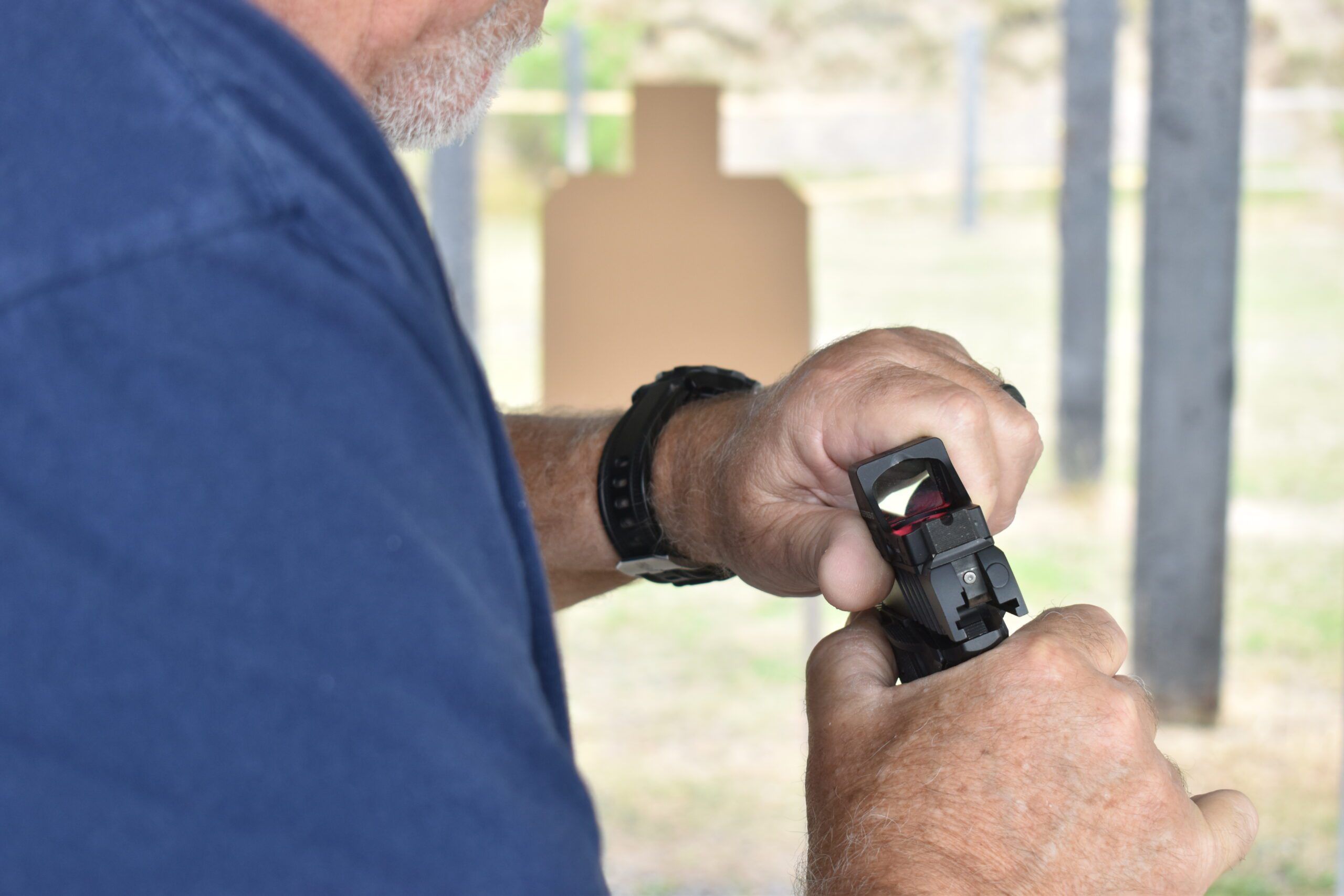
A DANGEROUS FAMILY DYNAMIC OF BAD RANGE SAFETY
One of our testers witnessed a family that had never heard any of these rules shooting near him at a private range in Houston. The father was instructing children and, watching the manner of his instruction, our tester decided to maintain his distance. During the middle of a string of fire, he saw a teenaged son waving a Ruger 22 all over creation. He stepped back in alarm and glared at the father. The dad explained that the son was worried about being stung by a wasp that was near him. Our testers reply – “I don’t care. If the Good Lord Himself comes back, you can wave but that pistol stays pointed down range.”
POINT YOUR GUN DOWNRANGE
If you need to set the firearm down at the range, the procedure is very straightforward. Keeping it pointed in a safe direction, remove any magazine, open the bolt or the cylinder, lock the slide on a semi-auto to the rear. The human mind frequently wants to bring the handgun into its workspace to perform these operations. That space tends to be with the pistol pointed across our body towards the support side and raised up where we can see it. That points it at anyone shooting next to us. Bringing it into your workspace is fine, it’s efficient and natural. Just make sure that you blade your body so that the firearm stays pointed down range when you do.
CARRY BAGS AREN’T JUST FOR WOMEN
Off body carry has always been popular for ladies and their purses. We are seeing fanny packs and man bags reappearing on today’s scene. Proper precautions for carry therein are very similar for all those platforms. Lady’s carry-style purses seem to be small suitcases designed by men and then dyed some pretty color. In year past, few were of a style ladies we’ve surveyed would carry. With proper designs becoming more common in the field that is changing. That said, the proper EDC purse, or fanny pack, or man bag should sport a separate compartment or pouch devoted exclusively to the pistol. Hopefully, position within that pouch (and muzzle direction) will be controlled by a Velcro strap of something similar. For bags not designed for EDC, find a sample that supplies a decent sized compartment near the top that would hold the pistol. Nothing, repeat, nothing goes in that pouch except for the pistol. No change, Chapstick or keys. This test group refuses to carry any pistol off-body that is not also equipped with an external, manual safety.
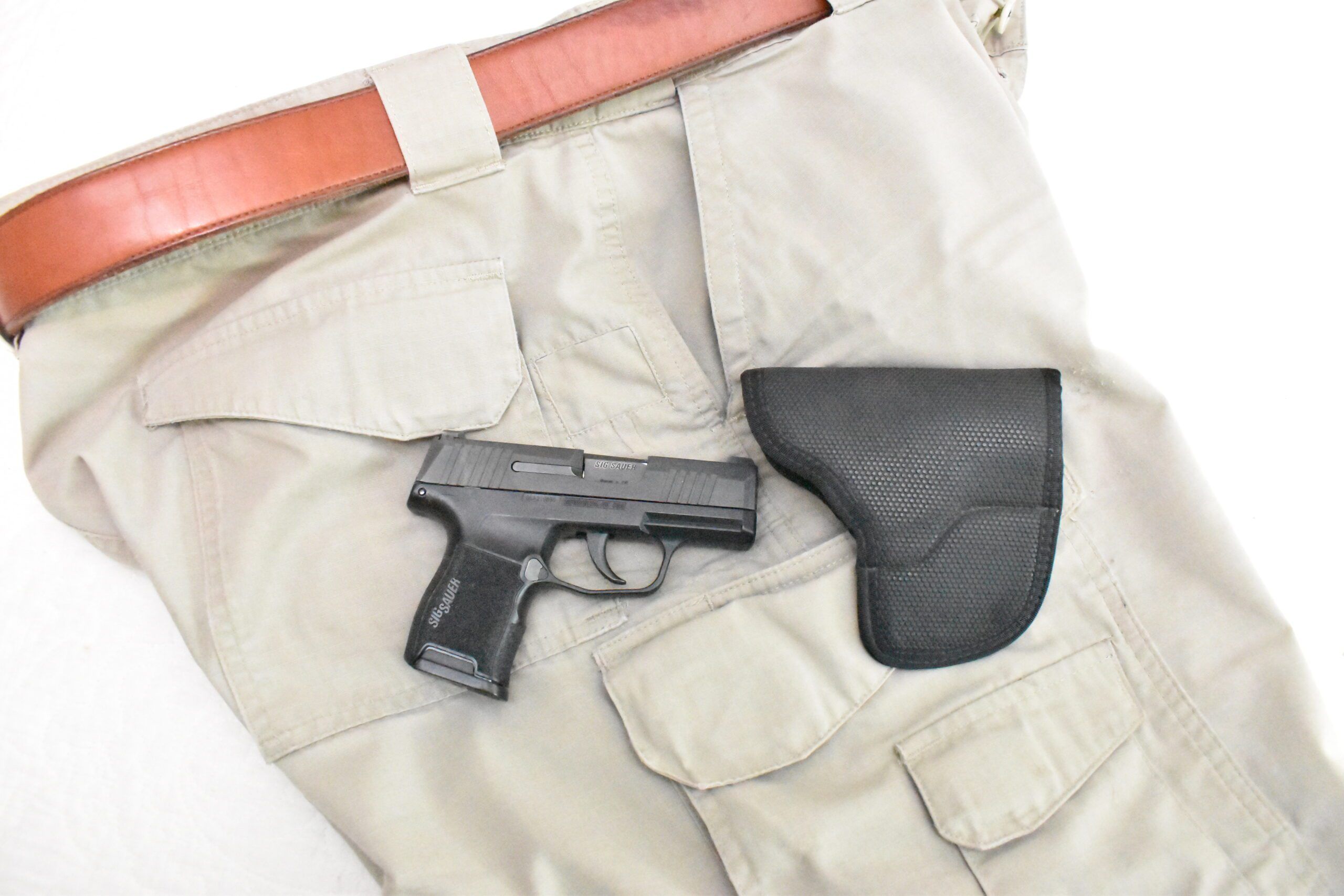
IF IT DROPS, LET IT
Handguns can be slick and hard to grasp. If yours should get out of hand, if it drops — let it fall, just like you would a bare knife. No less an instructor than Massad Ayoob told us that trying to catch a falling pistol in midair is more likely to end up with a finger in the trigger guard making bad things happen, than it is to be caught correctly. Negligent discharges from a muzzle strike are less likely to happen than those caused by a frantic finger grasping at a trigger.
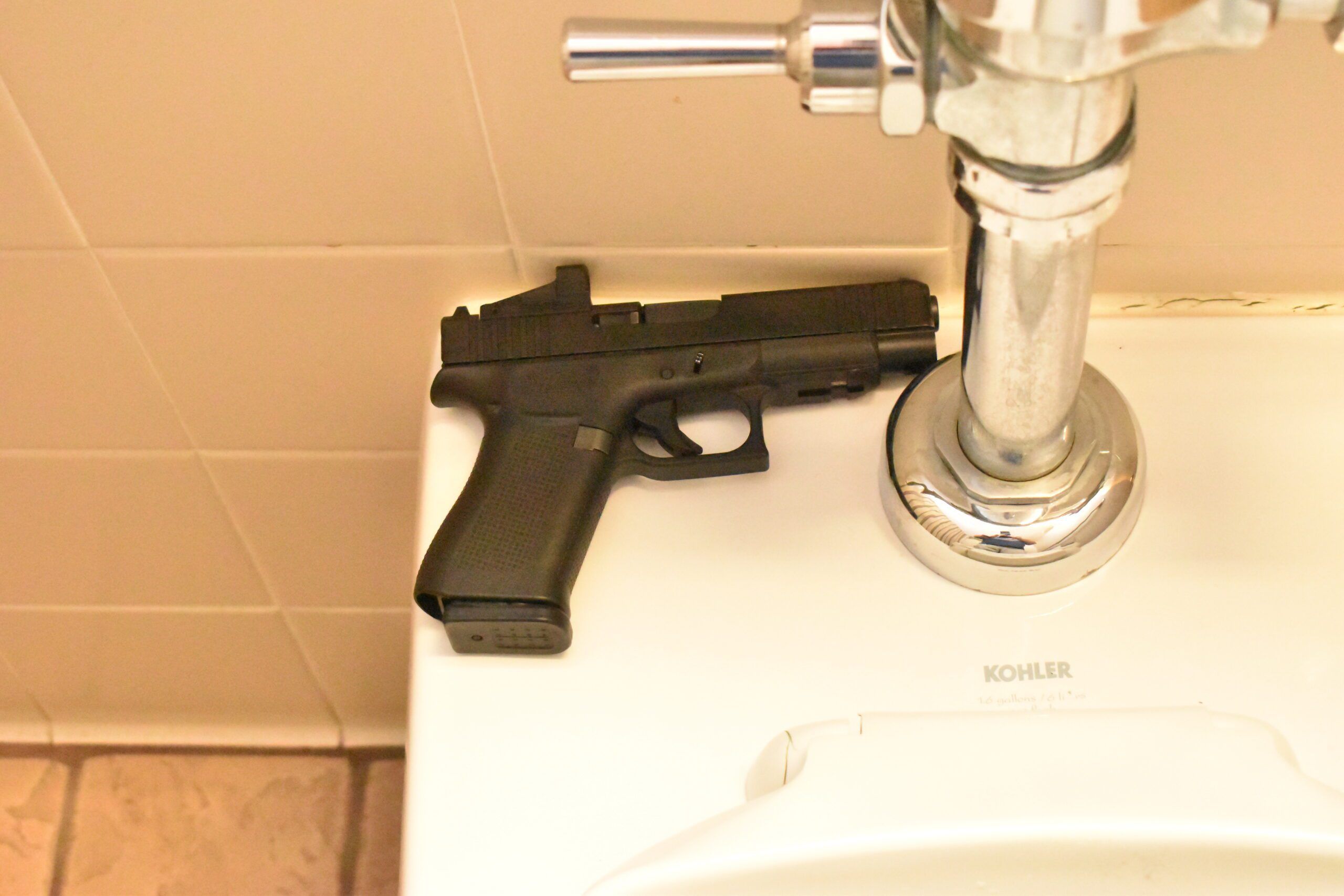
WHEN NATURE CALLS, WHAT THEN?
We’ve discussed firearms etiquette at home and the range. With the exception of a dynamic critical incident, which statistically is not real likely to happen, that covers all of our bases, right? Probably not for those of us who practice everyday carry.
Nature has a way of inserting itself into normal activities. There are certain bodily functions that nature requires we perform at frequent intervals, not all of which occur when we are in the comfort of our own home. What, for example, do you do when nature calls in a most dramatic fashion and you are at the mall?
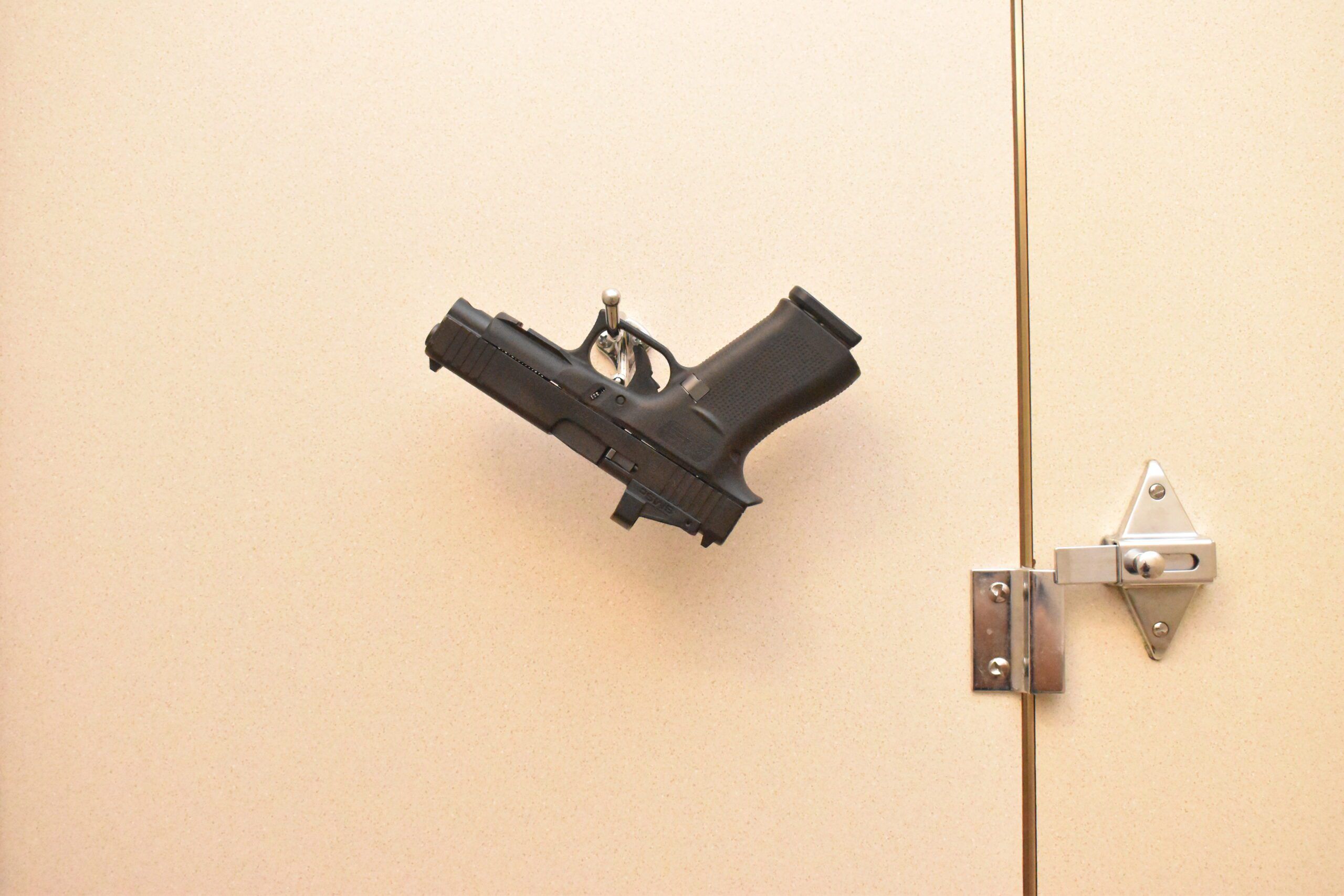
You have your blaster safely held in some type of holster on your belt. Physics being what they are, common procedure would suggest that belt is about to be on the floor – right where it and the holstered pistol will frequently be visible to the person in the next stall. Since that is not what we would call a desirable result, what can you do to avoid this?
Several solutions are available. They DO NOT include leaving your loaded pistol on the toilet tank or hanging it from the coat hook.
If you insist on setting it on the floor, first choose a stall at the end of the row, meaning you will not have a neighbor on one side.
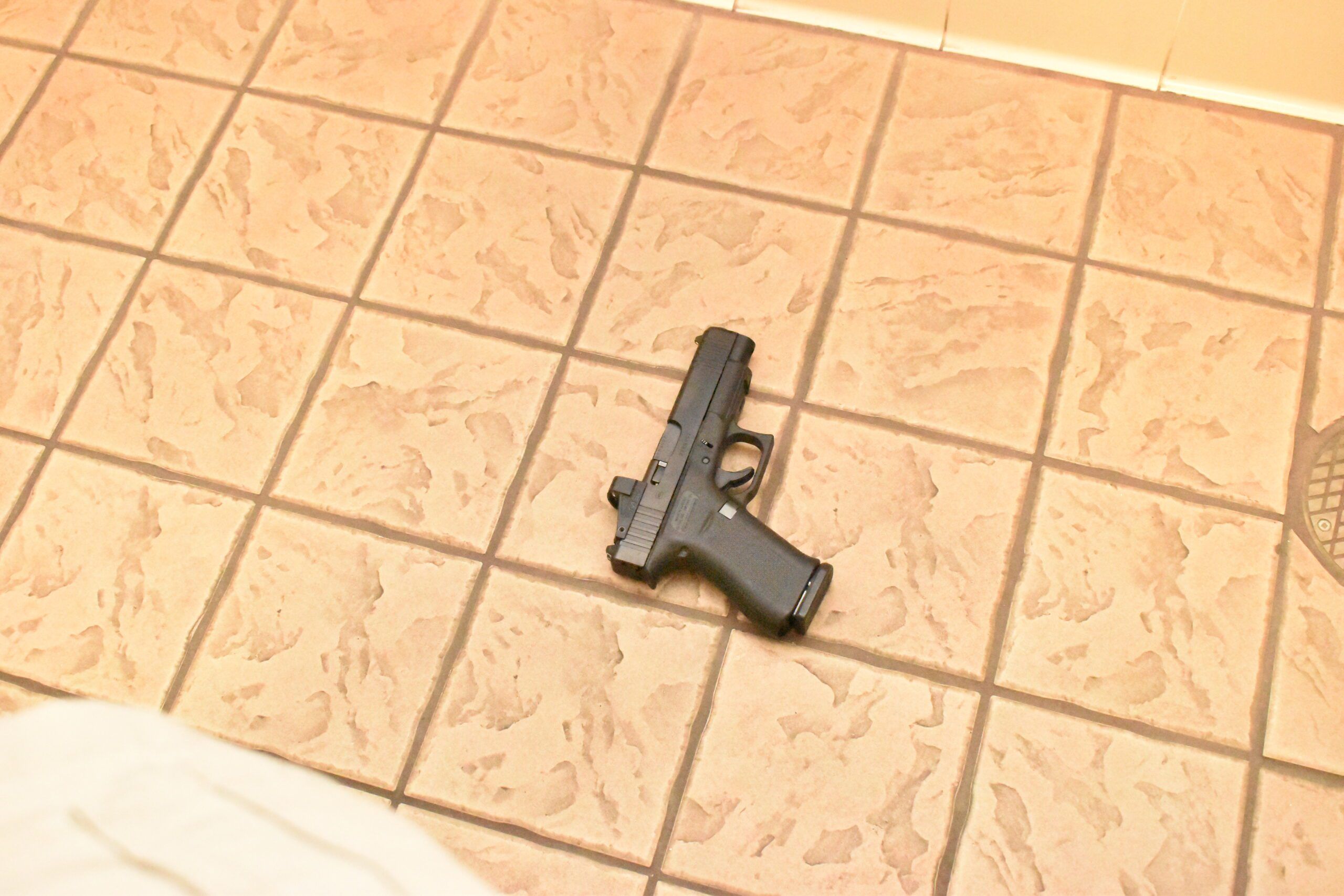
Set the pistol quietly on the floor with it pointed at the wall.
Another choice is to leave it on the belt and then not lower the belt past the knees. You can even put it in a pocket as long as it will stay in place and not point in an unsafe direction.
Wearing a pistol every day requires a lot of thought and concentration. No one wants to be covered by someone’s muzzle, and you don’t want to cover anyone with yours. Keep the Four Rules in the front of your mind, and you’ll be okay, and so will everyone around you.


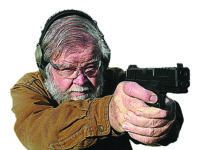
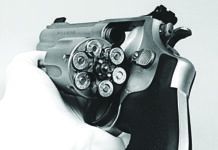
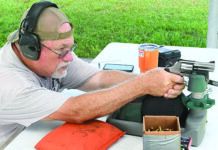
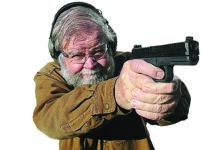
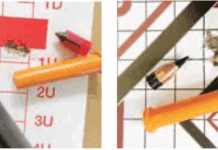
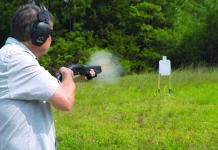
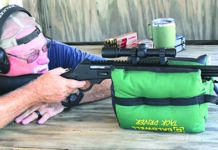
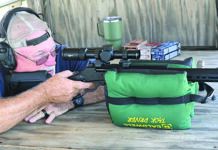
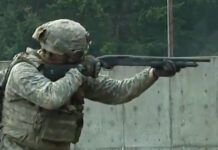


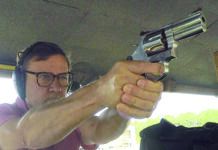
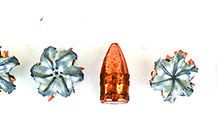
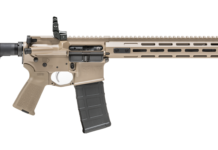
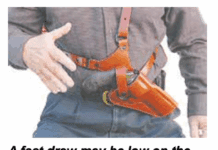
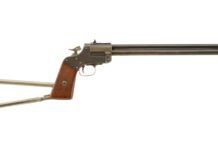
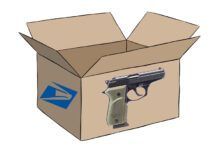

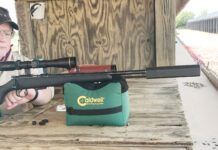
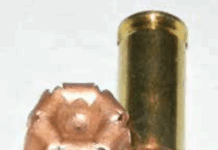

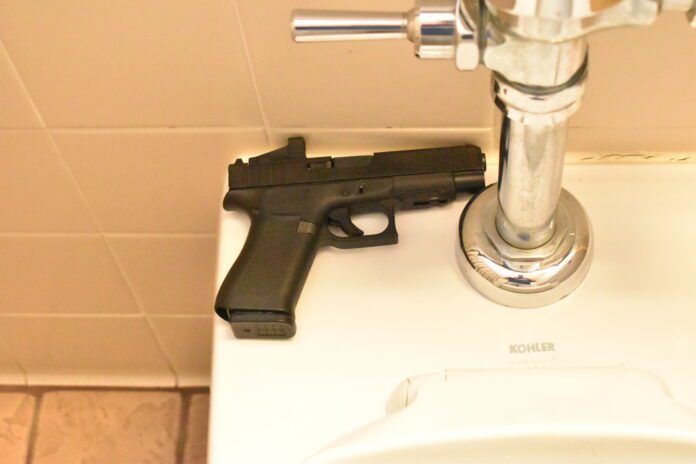


I have always taught my children rule one in a slightly different way. 1. “Every gun is ALWAYS loaded until you PERSONALLY determine otherwise. Once the gun leaves your hand, it has just become loaded again.” Maybe that’s similar to the rule described in the article but I teach it this way to ensure that they understand that no one can tell them a gun is unloaded and that once the gun is out of their control they cannot assume that things remained in the same state it was when they initially checked the firearm.